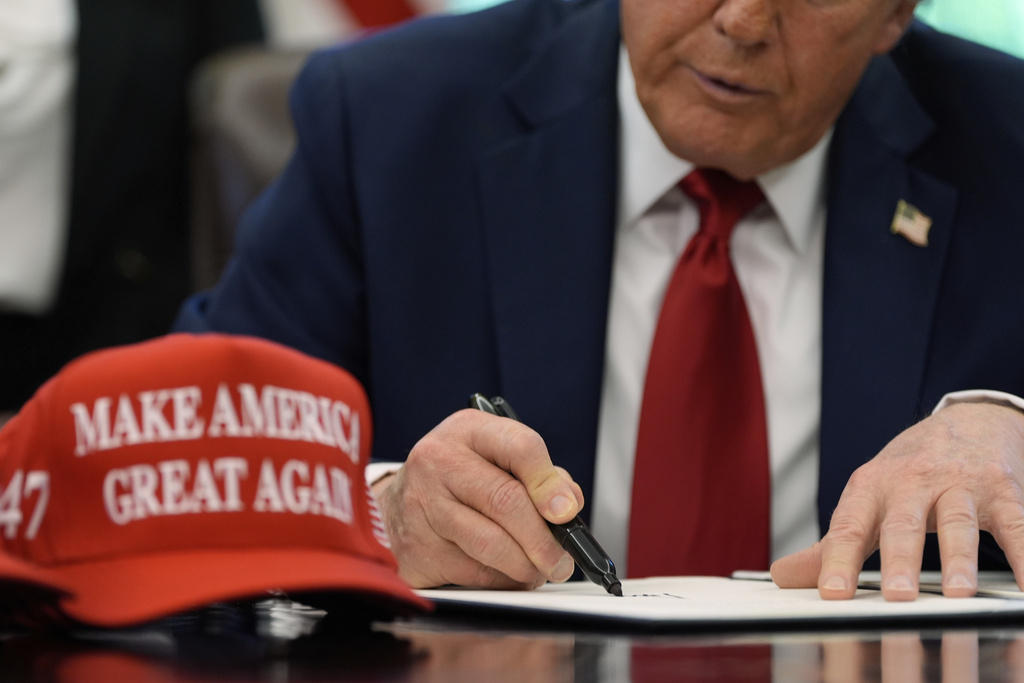
President Donald Trump has been intentionally avoiding judicial review. This was a fear held by many Democrats, but Republicans repeatedly said this fear was absurd and that Democrats were experiencing “Trump Derangement Syndrome.” It hasn’t even been 100 days into the Trump administration, yet it’s clear now that these fears were justified. There are already multiple examples of the Trump administration blatantly violating rulings from courts, including ones from the Supreme Court.
One of the most recent examples of Trump skirting the judicial branch is the case of the United States Agency for International Development. U.S.A.I.D. is an agency of the United States government that administers foreign aid and development assistance. Most of the countries receiving money have dire economic conditions caused by war, political instability, natural disasters, and more. Sending foreign aid is a net positive for both donor and recipient countries. The country receiving aid is able to rebuild their economy and increase political stability, while the country sending the aid is able to establish good relations with those countries and give themselves a positive image on the world stage. In fact, a major impetus for the creation of U.S.A.I.D. during the Cold War was as a way to increase the soft power of the United States and prevent countries from falling into the Soviet Union’s sphere of influence.
However, Donald Trump, Elon Musk, and DOGE seem to disagree with the sentiment that U.S.A.I.D. is beneficial for the United States. In February, the Trump administration cut more than 90 percent of the agency’s foreign aid contracts and fired a large portion of the agency’s employees. After these actions, a federal judge ruled that the dismantling of U.S.A.I.D. was unconstitutional. However, the administration ignored the ruling and proceeded to fire nearly every remaining employee, retaining just 15 positions in an agency that had about 10,000 earlier this year.
The swift firing of U.S.A.I.D. employees clearly violated the judge’s order. However, the Trump administration knew that once these employees were fired it would be difficult to bring all of them back, or even most of them. Even if a judge demanded the administration reinstate every employee, it was unlikely that they would want to return. Federal workers were already worried about their job security from the day of Trump’s inauguration because of his promise to “dismantle federal bureaucracy” and “restructure” agencies. Why would U.S.A.I.D. workers that were fired want to return to their jobs when they were clearly in this administration’s crosshairs?
Surprisingly, the conservative-led Supreme Court seems willing to fight back against Trump’s executive overreach. The Court ruled in a 9-0 decision that the Trump administration unlawfully deported Kilmar Abrego Garcia to El Salvador and that the administration must facilitate the return of Abrego Garcia to the United States. However, the Trump administration refused to comply with the Court’s order. Instead, the administration argues that they are only required to accept Abrego Garcia back into the United States if El Salvadorian authorities return him to the country, claiming that they don’t need to actively facilitate his return. We are currently witnessing a constitutional crisis unfold, and it’s unclear what will happen next if the administration continues to refuse the Supreme Court’s orders.
Trump’s willingness to defy the judicial system sets a very concerning precedent. The judicial branch has no direct enforcement mechanism to ensure that the Trump administration adheres to their rulings, and the Trump administration refusing to follow the Supreme Court’s order to return Abrego Garcia and the federal judge’s order to stop the dismantling of USAID proves that these concerns are valid. It’s unclear if the administration will continue to defy the court, but given that it hasn’t even been 100 days since Trump’s inauguration, it’s safe to assume that this isn’t the end of Trump’s war on the judicial branch. Americans need to remember the values that America was founded on and refuse to be complicit with the undermining of the judiciary.
The Zeitgeist aims to publish ideas worth discussing. The views presented are solely those of the writer and do not necessarily reflect the views of the editorial board.



